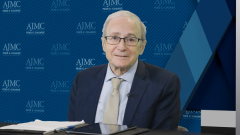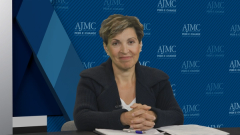
Causes and Triggers of Generalized Pustular Psoriasis
Mark G. Lebwohl, MD, explains what causes generalized pustular psoriasis (GPP) and the potential triggers for GPP episodes.
Episodes in this series

Ryan Haumschild, PharmD, MS, MBA: Dr Lebwohl, you gave us a great overview. You talked about generalized pustular psoriasis and the differences between GPP and other types of psoriasis. But...what causes GPP? We know there are triggers that sometimes cause [it]; explain what those triggers are.
Mark G. Lebwohl, MD: Sure. First and foremost, systemic steroids [are a trigger]. The first patient I ever saw came in with a life-threatening condition. She was a nurse at Mount Sinai, 28 years old, and covered in pustules. She had gone to a rheumatologist who treated her psoriatic arthritis. And I will preface this by saying she had almost no psoriasis before she saw him, a little bit on her elbows. He treated her with systemic steroids, 20 milligrams [mg]. She [responded well to the treatment]. When he lowered the 20 mg to 10 mg, she broke out in pustular psoriasis. He raised [the dosage] to 20 mg, but nothing happened. He increased [it] to 30 mg. Again, everything went away. She thought he was wonderful. He lowered it from 30 mg to 20 mg and the GPP broke out again. The doctor increased her dosage to 30 mg, and nothing happened; he then brought it up to 40 mg. And they kept playing that game where each time he would lower it, he’d then need to [increase it more than before]. Eventually, when I saw her, she was on more than 60 mg of prednisone for more than 6 months and was experiencing classic Cushing syndrome. Eventually, we were able to get her off the medication, but with tremendous difficulty and [it required] more than 6 months. It is very difficult to taper off steroids. The second patient [with GPP] I encountered came to me because he was going to Southeast Asia. He had business [there]. He took an antimalarial for [the trip] and he broke out in pustular psoriasis. The incident was self-limited, and it went away. The next time he went to Southeast Asia, he didn’t take the antimalarial and he contracted malaria. He came to me and said, “What can you do?” Even back then there were other antimalarials—doxycycline, for example, is an antimalarial—so we were able to manage [his outbreak]. I wish to point out that the antimalarial played a role here, because some people will deny that. They think it’s a coincidence. There was a year or 2 when it was fashionable to treat Crohn disease with antimalarial medications. We have a large population [of patients with Crohn disease] at Mount Sinai [New York, New York]. That was [also] a record year for pustular psoriasis at Mount Sinai. We had so many cases precipitated by the antimalarial medicines that I [feel certain] they are a cause. There are [several] other drugs that have been implicated as well. Withdrawal from various treatments has been implicated. There are several additional causes. Infection also has been shown to trigger it, and then there’s a condition called impetigo herpetiformis, which is pustular psoriasis of pregnancy, a rare form of GPP. But the most common trigger is systemic steroids.
Ryan Haumschild, PharmD, MS, MBA: I appreciate you giving us the overview and especially talking about the different medications and the case examples because it’s important for our audience to understand. It is a rare disease, so the more we can educate people about GPP and some of its triggers, the more beneficial it will be to our payers and our colleagues.
Transcript edited for clarity.
Newsletter
Stay ahead of policy, cost, and value—subscribe to AJMC for expert insights at the intersection of clinical care and health economics.









